Trends
Meet Desola Oniru, the popular UNILORIN graduate that rebrands and sells Iru (locust beans) differently
Adesola Oluwatosin Adebiyi is popularly known as Desola Oniru, a nickname derived from her popularity as a graduate that sells locust beans locally called by Yorubas as Irú or Eware (Edo).
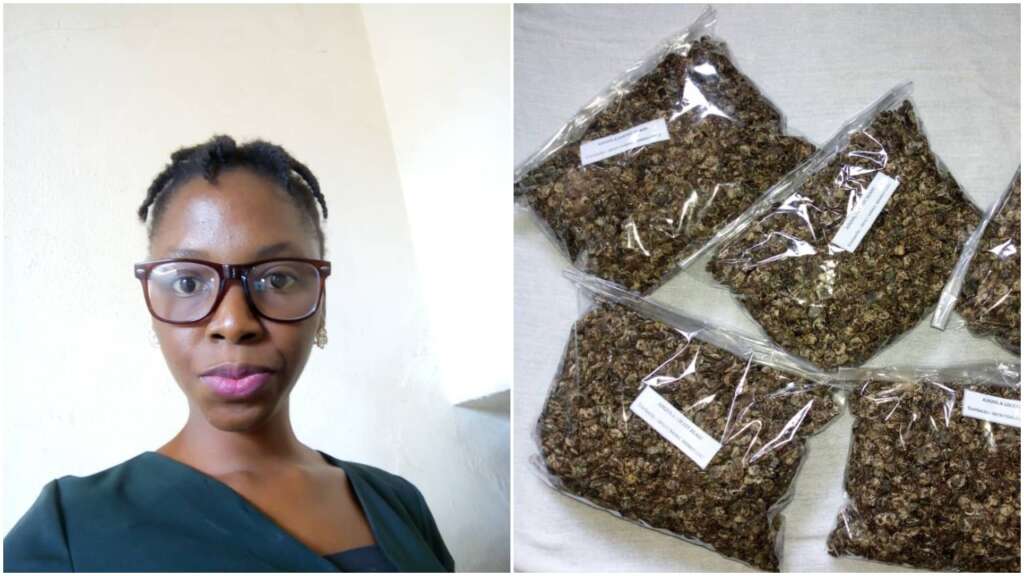
Adesola Oluwatosin Adebiyi is a Nigerian entrepreneur and a graduate of the University of Ilorin, Kwara State where she studied Linguistics; she is popularly known as Desola Oniru, a nickname derived from her popularity as a graduate that sells locust beans locally called by Yorubas as Irú or Eware (Edo).
More so, Desola Oniru hails from Ekiti State but was born and bred in Ilorin, Kwara State. “I have spent all my life here which automatically means this is where I reside.”
In a close interview with one of RNN correspondents, she said the business used to be her mums, and that is what she feeds on before and after admission into Unilorin.
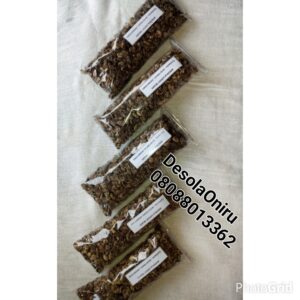
According to her, ‘What draws me to pitch my tent in Iru business is the passion I later develop for it. In terms of ‘I don’t want my mother’s business to die with her if she’s gone.
“I took it up fully when I came back from service and had nothing to do. After all the applications I sent out in search of Job was futile. I added the knowledge I have acquired to this business and which in turn made me stand out,” she added.
However, she lamented that “I wasn’t a business person. I don’t like anything related to business but the realization set in when I came back from Service and had nothing to do.

“And you know, idleness is not a friend to a hardworking person. I had to sit myself down and talk to sense into myself. That life is what I make of it. I gave myself a self-encouragement that I can do this. And amazingly I’m coming up!”
What is Iru and the Importance of the product?
Iru, the Nigerian locust beans is of great importance in Nigeria as people rely on it as a traditional spice to add flavour to foods, as traditional medicine and remedy for several ailments.
According to Wikipedia, Irú is a type of fermented and processed locust beans (Parkia biglobosa) used as a condiment in cooking. It is similar to ogiri and douchi. It is very popular among the Yoruba people and Edo people of Nigeria.
Furthermore, it is used in cooking traditional soups like egusi soup, Okra soup, Ewedu soup and Ogbono soup. Among the Manding-speaking people of West Africa, irú is known as sumbala.
The Yorubas classify Iru into two types: Irú Wooro which is commonly used in making stew and Irú pẹ̀tẹ̀ which is used in making ewedu and egusi soup.
- Yoruba’s claim the fruits are normally used for treating hypertension and is useful for boosting the immune system, especially in immunocompromised individuals.
- The bark of the African locust beans can be crushed, ground, soaked and boiled for preparing herbal tea for treating and healing wounds.
- It can be infused or soaked in liquid for treating respiratory infections such as pneumonia, bronchitis, cold, cough and fever.
- Iru is also a rich source of tannins and as such both the seeds, roots, stems, barks, fruits, flowers and leaves can be used for treating gastrointestinal diseases such as diarrhoea and ulcer.
How Desola Oniru makes her Iru and what makes it differs?
When asked how she makes her Iru and why she thinks it is different, she said: “as we all know, there’s no product that doesn’t come with its own stress. Iru making is no child’s play.”
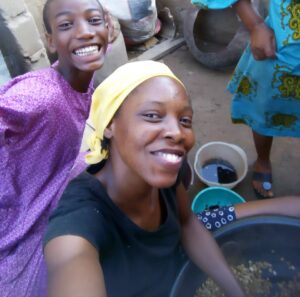
To her Iru making requires crude make-up, even though we can’t deny the advent and usefulness of technology- as it helps. “With the semi-large quantity I’m making, the process is a long and stressful one. Now that I’m still using manual production.
“Each to his own. For me, my production is in 4 stages and it takes 4 days too. Stage One deals with the removal of chaff from the seed.
“It’s soaked inside a mortal and ashes is sprinkled on it. Then the pounding continues till the chaff is separated from the seed. It is then poured inside a basin for easy removal of the chaff.
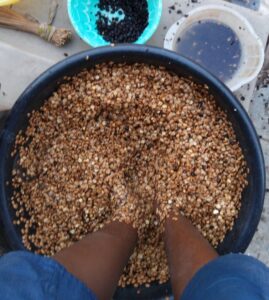
“Stage Two has to do with the cooking. This takes hours. Several hours like 8-9hours for it to be done.
“Stage Three deals with the processing/washing. The process of pouring it inside the mortal is repeated again. Then I wash and rewash till the dirt in form of the black peel is removed. Then, we proceed into the fingerpicking process etc.
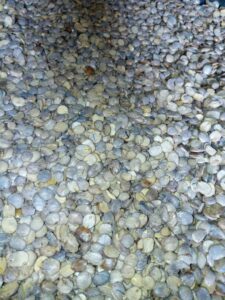
“It is poured back inside the pot and cook again. This second cooking is not as long in duration as the first. Then it is covered up in calabash and clothes.
“Stage Four is the final stage. This stage can be term as the end result. It is the stage that will show you the outcome of all the processes that has been done from stage one. It is either it comes out well or it has been deformed.”
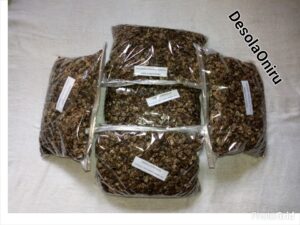
Desola Oniru delivers her unique made Iru nationwide, from Kwara to places in Nigeria. To contact her, buy or for further enquiries about the process, you call her hotlines 08088013362, 08063085843.
More so, you can follow her on Instagram below to see her amazing works
